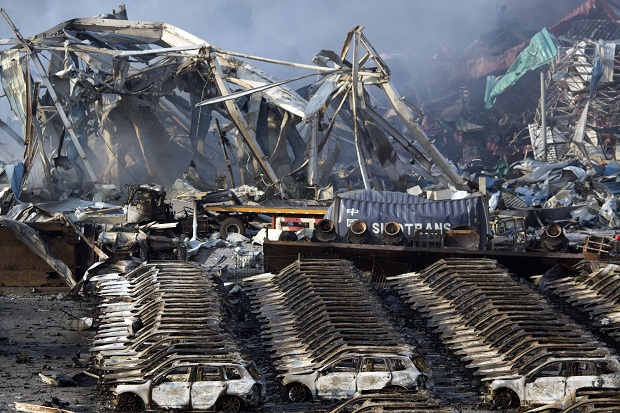UN expert slams China on chemical blast secrecy

Charred remains of a warehouse and new cars are left burned after an explosion at a warehouse in northeastern China’s Tianjin municipality, Thursday, Aug. 13, 2015. AP Photo
GENEVA—A United Nations (UN) human rights expert has criticized China for its lack of transparency in handling a chemical blast in the northeastern city of Tianjin.
Baskut Tuncak, UN’s expert on hazardous substances and waste, said the disaster might have been prevented or the extent of the damage limited if authorities had provided more information and pointed to countries’ obligations to inform the public about hazardous substances.
“This chemical disaster serves as yet another tragic example of the need of information about hazardous substances to protect, respect and realize human rights,” he said in a statement Wednesday. “The lack of information when needed—information that could have mitigated or perhaps even prevented this disaster—is truly tragic.”
The comments amount to an unusually sharp rebuke for Beijing from a UN expert and join appeals in China for better communication from authorities about the fates of those who were killed or remain missing. The Aug. 12 blasts at a warehouse for hazardous materials in Tianjin killed at least 114 people. Another 65 people are still missing and 674 are hospitalized.
The statement criticized Chinese press restrictions after the explosions and called for “complete transparency” in the pending investigation.
Article continues after this advertisement“The reported restrictions on public access to health and safety information and freedom of the press in the aftermath are deeply disturbing, particularly to the extent it risks increasing the number of victims of this disaster,” Buncak added.
The blasts occurred at a warehouse where 700 tons of sodium cyanide—a toxic chemical that can form combustible substances on contact with water—was being stored in amounts that violated safety rules.